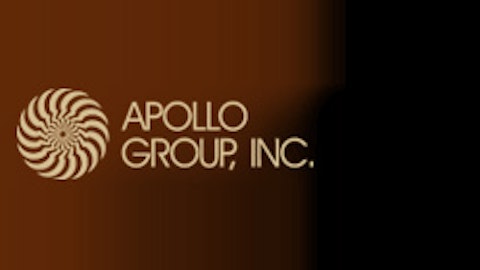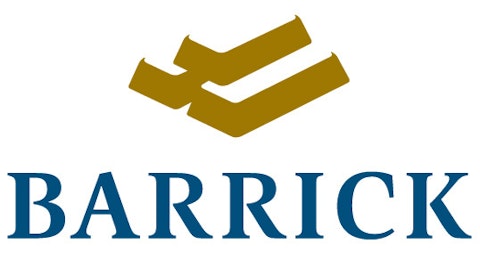
A tough job market, increasingly high cohort default rates, exorbitant tuition, sanctions and accreditation insecurity, low retention, a scathing Congressional report, and questionable cost structures have caused students to lose faith in the value of a college degree. Since revenues are tied so closely to enrollments, revenues have taken a big hit and many for-profits are now losing money. Many investors have been discouraged by the tough environment and questioned the industry’s very existence going forward. That’s where I draw the line.
There is no doubt in my mind that for-profits will continue to play an important role in educating America. I believe this for a few key reasons. For one, there is still substantial value in a college degree.

Source: Strayer Education Company Overview
The discrepancy between average pay for Americans with a bachelor’s degree and those with only a high school diploma has widened substantially in the last few decades and has never been greater. That trend will continue. We no longer sport the unskilled labor jobs we used to. Those jobs have gone overseas and probably won’t come back for the foreseeable future.
Education institutions will continue to exist, and for-profits specifically have a sustainable presence. As much as Congressional leaders hate to admit it, for-profits play a key role in educating our citizens. They cater to a niche market that traditional schools don’t – working adults. The U.S. Bureau of Labor Statistics has reported that approximately 62 million working adults in the United States do not have more than a high school education and approximately 34 million people have some college experience but no college degree.
These working adults have been reluctant to invest in an education in the past few years, but this is likely only a temporary issue. A for-profit that focuses on its value proposition to students may be able to convince these adults of the benefits of a college degree and capitalize on the pent up demand in the market. That’s why I think investors should shop for education stocks like a student would – by looking for compelling value. In the remainder of this article, I’ll discuss and compare a few education stocks to determine if they do just this and are positioned to survive and thrive. I’ll cover Strayer Education Inc (NASDAQ:STRA), Apollo Group Inc (NASDAQ:APOL), and Bridgepoint Education Inc (NYSE:BPI).
Cohort default rates
One of the most important metrics for determining education quality is cohort default rates. Schools that the educate best and have the best student outcomes should have the least alumni defaulting on their federal student loans.

The results are pretty clear. In every year, Strayer Education Inc (NASDAQ:STRA) was under the national average and had the lowest rates by a substantial margin. Bridgepoint’s Ashford University was only below the national average in one year, but outperformed Apollo’s University of Phoenix in 2 of the 3 years recorded. University of Phoenix’s numbers are the worst of the 3 institutions and exceeded the national average in every year.
Regulatory scrutiny
About a year ago, the Senate HELP Committee led by Senator Tom Harkin released a scathing report on the for-profit education industry entitled For Profit Higher Education: The Failure to Safeguard the Federal Investment and Ensure Student Success. The report is the culmination of a 2 year investigation of 30 prominent for-profit education companies and their institutions. While I believe the Committee was quite biased and singled out for-profits, the findings are somewhat indicative of academic quality at the institutions analyzed.
The report says the following about Apollo Group Inc (NASDAQ:APOL):
The investigation demonstrates that, at least during the period examined, the company invested relatively little in students and struggled to retain Associate degree students. While the company has started to take positive steps in the right direction, more remains to be done.
And here’s the summary of Bridgepoint Education Inc (NYSE:BPI):
Along with (Bridgepoint’s) rapid growth, have come rapid increases in student withdrawal rates (the student withdrawal rates for the Associate programs is the highest of any company analyzed), student loan defaults, and spending on marketing and executive compensation. These outcomes call into question whether Bridgepoint’s students are receiving an education that affords them to the ability to repay the loan debt they incurred.
And finally, Strayer Education Inc (NASDAQ:STRA):
The company’s performance, measured by student withdrawal and default rates, is one of the best of any company examined, and it appears that students are faring well at this degree based for-profit college.
While Tom Harkin and the rest of the committee are clearly critical of for-profits in general, they complimented practices at Strayer Education Inc (NASDAQ:STRA) and were less critical of Apollo Group Inc (NASDAQ:APOL) than Bridgepoint Education Inc (NYSE:BPI).
Accreditation
A school’s accreditation status and relationship with its accreditor is a good indicator of the school’s value proposition to students.
Apollo’s University of Phoenix has had accreditation issues recently. A peer review team visited the school a while back and in February, recommended that the school’s accreditor, the Higher Learning Commission, place the school on Probation. Probation would signify that the school is out of compliance with HLC criteria. Last week, Apollo Group Inc (NASDAQ:APOL) announced that HLC had reviewed the recommendation and decided to instead place the U of Phoenix on Notice, a lesser sanction indicating that the school is on a course of action that could lead it to be out of compliance. It’s not as bad as Probation, but accreditation security at the university will still be uncertain for the next 2 years.
Bridgepoint’s Ashford University has also had issues with accreditation, but last week received initial accreditation from WASC for 5 years.
Of the 3, Strayer University has the best relationship with its accreditor. In 2007 the university actually requested an accreditation reaffirmation 4 years before it was required to do so, suggesting that the school was confident in the academic quality and outcomes it produced. It received a reaffirmation for 10 years through 2017 without any sanctions being placed. 10 years is the maximum duration an accreditor can reaffirm accreditation for and is rarely given, which Middle States was impressed with in its findings.
Conclusion
Recent developments in the for-profit education industry strongly suggest that schools will have to offer students a better value than they have in the past. Financial performance going forward will heavily depend on this value proposition. It appears that Strayer Education Inc (NASDAQ:STRA) is best positioned to capitalize on this trend of the three companies analyzed. Apollo Group Inc (NASDAQ:APOL) has the most issues of the three, and Bridgepoint Education Inc (NYSE:BPI) is somewhere between the other two. Investors should use this data in conjunction with traditional profitability and financial health metrics to determine the opportunity in investing in these and other education companies.
The article Searching For Value in the Education Industry originally appeared on Fool.com and is written by Brian Grosso.
Brian Grosso has no position in any stocks mentioned. The Motley Fool recommends Bridgepoint Education. The Motley Fool owns shares of Bridgepoint Education. Brian is a member of The Motley Fool Blog Network — entries represent the personal opinion of the blogger and are not formally edited.
Copyright © 1995 – 2013 The Motley Fool, LLC. All rights reserved. The Motley Fool has a disclosure policy.


